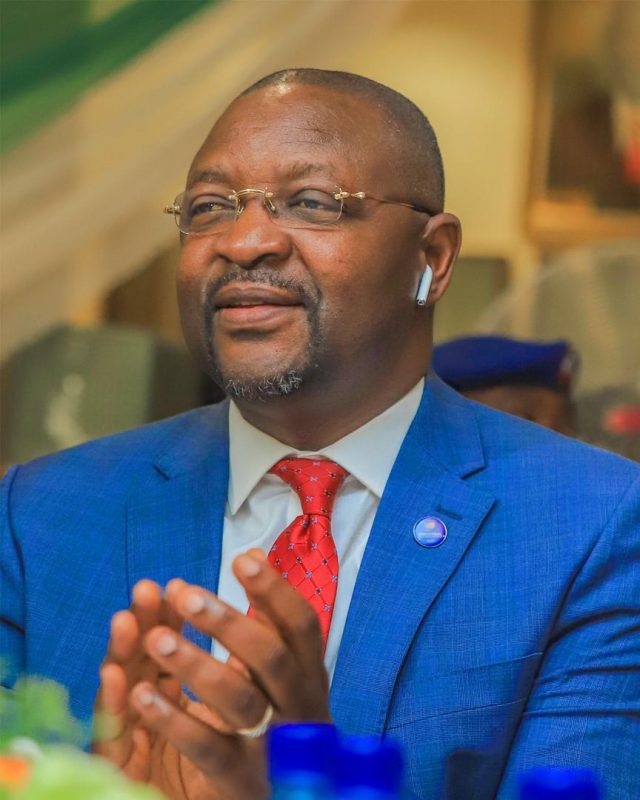Imagine a scenario where Real Madrid FC, Barcelona FC, Liverpool FC, Arsenal FC and other famous European teams in different leagues were permitted to compete in their domestic leagues without the requisite license as prescribed by world and European football governing bodies (FIFA/UEFA).
Well, that has been the situation in Africa’s most populous and football-mad nation, Nigeria, since 2012 when club football licensing became law in Africa by virtue of the Confederation of African Football (CAF) Clubs Licensing Regulations of 1st March 2012.
Successive leadership of the Nigeria Football Federation (NFF) has failed to and/or refuse to domesticate the regulations for eight consecutive seasons in absolute disregard to CAF regulations and without any sanctions. It was widely believed that as most clubs in the Nigeria Professional Football League (NPFL) are government-owned, the football federation is powerless to enforce the licensing regulation or sanction on the clubs. The NFF itself depends on government for funding as it remains a government parastatal under the Ministry for Youth and Sports Development (MYSD).
This failure to implement the regulation has retarded elite and grassroots football development in Nigeria. Players and coaches are routinely owed salaries; insurance and medical cover for playing staffs are non-existent; stadium infrastructures are moribund and mostly unfit for purpose, safety and security at grounds all over the country are porous with fans and broadcasters staying away. The NPFL in light of all these negative outlooks has not had a broadcast partner for the past few seasons.
Sports minister talks tough
When the Nigerian Sport and Youth Development Minister, Mr Sunday Dare in early September 2020 declared that the NPFL will not be permitted to commence its
2020/2021 season without full implementation of the CAF-approved club licensing regulations, many observers and indeed the clubs themselves thought that the minister was merely talking tough as Mr Sunday Dare only became minister in August 2019.
Activities within Nigerian sports sector in the past year have shown that Mr Dare backs his words with actions. In July this year (2020), the minister got approval from the Federal Executive Council (FEC – highest decision-making body in Nigeria) for a
N75 billion ($195m USD), Nigerian Youth Investment Fund (NYIF) to support enterprise among 68 million Nigerian youths between ages 18-35.
This was followed up in August 2020 by the public presentation of the draft 2020
National Sports Industry Policy (NSIP) document that would drive the ‘recreation to business’ intent of the sports ministry. For the first time in Nigeria’s public policy development, the general public was invited to comment on the draft and send in memoranda. It is expected to be ratified by the end of the year (2020) and replace the 2009 National Sport Policy which has been widely condemned as no longer fit for purpose.
Momentum
In a major move towards achieving licensing of clubs before the league kicks-off date of 24th October 2020, the League Management Company (LMC) invited the twenty participating clubs to submit their licensing application by mid-September 2020 with final decision on the applications expected by 14th October 2020.
How will grass-roots football benefit?
Aside from the regular benefits of club licensing such as guaranteeing financial stability of the clubs, evidence of commitment and ability to honour every home and away fixture, security and safety at grounds, infrastructural renewal, etc., article 8 of the said CAF Clubs Licensing Regulations 2012, mandates clubs to invest in quality-driven youth development programmes. Specifically referred to as ‘sporting criteria’, each team within the NPFL is expected to have youth team within its legal entity or affiliated to its legal entity with “at least one youth team within the age range of 15 to 21” and “at least one youth team within the age range of 10 to 14”. The youth teams are expected to have formal school education, medical support, financial and infrastructural resources imbibed within their programmes for the development of the young players.
Solution to agelong problem
Holistic implementation of the article 8 ‘sporting criteria’ of the club licensing regulation will immediately address in parts:
• the agelong problem of neglect of grassroots football development in Nigeria,
• send the right signal that football and formal school education can go hand in hand,
• will evolve an age-documentation and verification process of young players from very early stage so that the perennial age falsification accusation against Nigerian age-grade players representing the national teams will become extinct,
• the opportunity for grassroots youth teams to affiliate with an NPFL club will motivate those grassroots clubs to upscale their training, facilities, encourage formal training of coaches and certifications.
Implementation is the key
It is a common saying in Nigeria that availability of rules, regulations and laws are not the problem but the implementation of those rules, regulations and laws are. In this instance, Minister Sunday Dare working in close collaboration with other stakeholders within the football sector must ensure that the implementation process does not become a box-ticking exercise where corruption will render the good intent behind the regulations a nullity.
It is certain that if the implementation is executed appropriately with constant monitoring and evaluation, the foundations would have been laid for the next generation of footballers in Nigeria that will bring back the glory days when Nigeria’s Super Eagles were ranked 5th best in the FIFA ranking in 1994. Mr Sunday Dare would have bequeathed a lasting legacy for football development in Nigeria.
Bob Olukoya Esq.,a doctoral research fellow at the Institute for Sport Business, Loughborough University London, writes from London.










Great article Sir @BobOlukoya